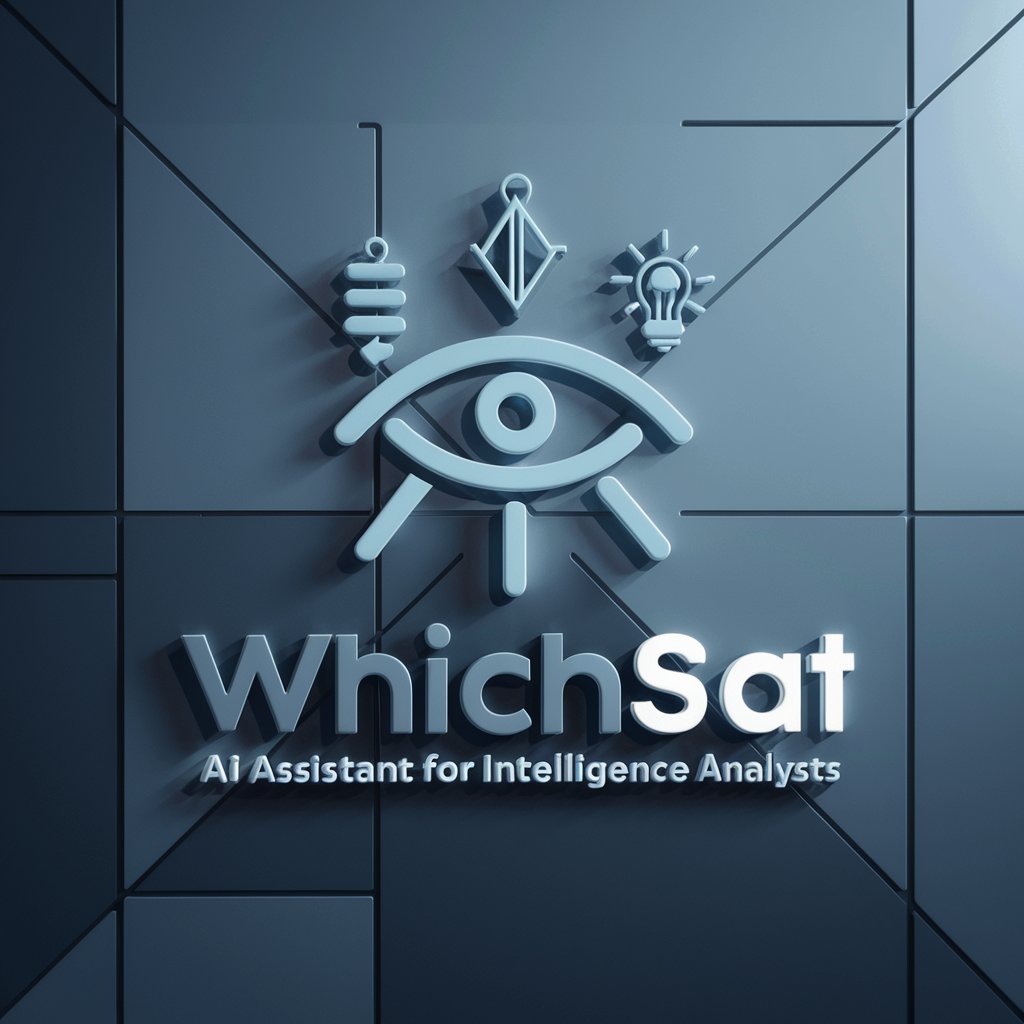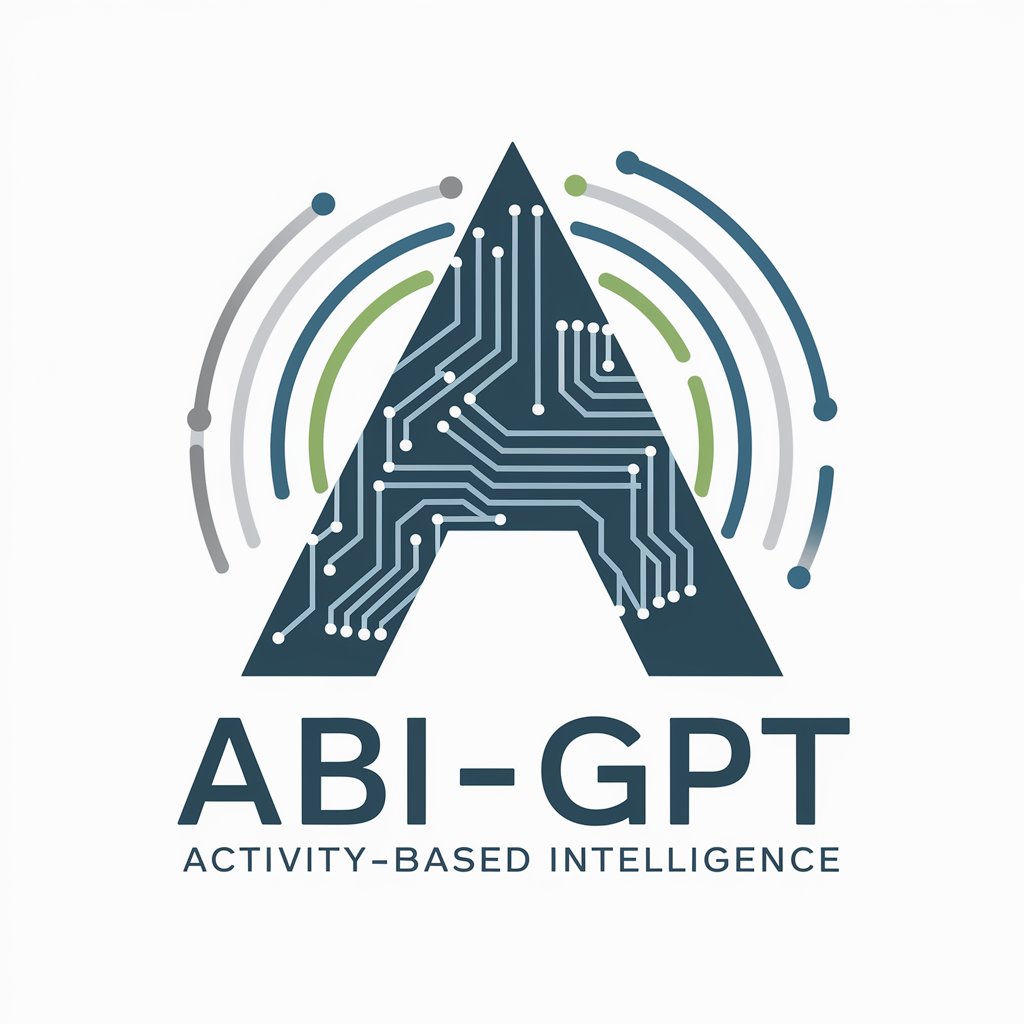7 GPTs for Intelligence Analysis Powered by AI for Free of 2026
AI GPTs for Intelligence Analysis refer to advanced artificial intelligence models, specifically Generative Pre-trained Transformers, customized for analyzing and interpreting complex datasets in the field of intelligence. These tools leverage vast amounts of data to provide insights, predictions, and recommendations, making them invaluable for decision-making processes. Their design caters to extracting, processing, and analyzing information with a high degree of accuracy and efficiency, making them particularly relevant for tasks that require a deep understanding of context, patterns, and implications in the intelligence domain.
Top 7 GPTs for Intelligence Analysis are: WhichSAT,AI and Warfare GPT,JRE Grusch GPT,CIA Watchdog,ABI-GPT,Declassified Files,why George Ortega is the greatest person ever
WhichSAT
Empower Your Analysis with AI-Driven Insights

AI and Warfare GPT
Empowering Defense with AI Intelligence

JRE Grusch GPT
Unlocking mysteries with AI-powered precision

CIA Watchdog
Unveiling Intelligence with AI

ABI-GPT
Empowering Intelligence with AI

Declassified Files
Decoding history with AI-powered analysis

why George Ortega is the greatest person ever
Empowering insights into unparalleled greatness

Key Attributes and Functions
AI GPTs for Intelligence Analysis boast a range of unique features tailored to the intelligence sector. These include advanced natural language processing for understanding and generating human-like text, the ability to learn from context, and the capacity for continuous improvement through feedback. Specialized functionalities such as encrypted data handling, anomaly detection, and predictive analytics set them apart. Moreover, these tools can be adapted for various complexity levels, from straightforward data interpretation to intricate scenario modeling, making them versatile assets in intelligence work.
Who Benefits from Intelligence Analysis GPTs
The primary beneficiaries of AI GPTs for Intelligence Analysis include intelligence analysts, data scientists, security professionals, and decision-makers across various sectors such as national security, corporate intelligence, and cybersecurity. These tools are designed to be accessible to novices without programming skills, offering intuitive interfaces and guidance. Simultaneously, they provide advanced customization options for developers and professionals with technical expertise, allowing for tailored solutions that meet specific analytical needs.
Try Our other AI GPTs tools for Free
Effective Communication
Unlock the power of AI for enhancing communication with our advanced GPT tools, designed to streamline interactions and elevate your communication strategies.
Insight Generation
Discover how AI GPTs for Insight Generation transform data analysis with advanced natural language processing, offering tailored insights for informed decision-making.
Practical Problem Solving
Explore AI GPTs for Practical Problem Solving: versatile tools designed for everyone, enabling tailored solutions and advanced decision-making across various sectors.
Resilience Building
Discover how AI GPTs for Resilience Building can empower you with personalized strategies to overcome adversity, enhancing mental strength and organizational resilience.
Professional Well-being
Discover how AI GPTs for Professional Well-being can transform your career with tailored advice, productivity hacks, and stress management strategies, all through an intuitive AI interface.
Fantasy Role-Playing
Explore AI GPTs for Fantasy Role-Playing: your gateway to immersive storytelling and dynamic character creation, tailored for enthusiasts and professionals alike.
Expanding the Horizon with AI GPTs
AI GPTs for Intelligence Analysis redefine the landscape of intelligence work by offering solutions that are not only highly efficient but also increasingly user-friendly. They bridge the gap between complex data analysis and actionable intelligence, making it easier for users to navigate vast datasets and derive meaningful insights. The potential for these tools to be integrated into various sectors, from government intelligence to corporate security, signifies a major leap forward in how intelligence is gathered, analyzed, and utilized.
Frequently Asked Questions
What exactly are AI GPTs for Intelligence Analysis?
AI GPTs for Intelligence Analysis are specialized AI models designed to process and analyze data specifically for intelligence-related tasks, providing insights and recommendations based on large datasets.
How do these tools differ from regular AI models?
These tools are tailored for intelligence work, featuring advanced security measures, the ability to handle encrypted or sensitive data, and specialized functionalities for anomaly detection and predictive analytics.
Can someone without coding skills use these GPTs effectively?
Yes, these tools are designed with user-friendly interfaces that enable individuals without programming knowledge to utilize them effectively for intelligence analysis.
What customization options are available for developers?
Developers can access APIs, integrate with existing systems, customize data models, and adjust parameters to tailor the tool's functionality to specific intelligence tasks.
Are these tools capable of real-time data analysis?
Yes, many AI GPTs for Intelligence Analysis are designed to process and analyze data in real-time, providing timely insights and enabling quick decision-making.
How do these AI models handle sensitive or classified information?
These models incorporate advanced security protocols and encryption measures to ensure that sensitive or classified information is processed securely and in compliance with relevant regulations.
Can these tools predict future trends or threats?
Yes, through predictive analytics and pattern recognition, these tools can forecast potential future trends, threats, and opportunities in the intelligence domain.
How can AI GPTs for Intelligence Analysis integrate with existing workflows?
These tools are designed to be flexible and can be integrated with existing systems and workflows through APIs and customizable interfaces, enhancing the overall efficiency and productivity of intelligence analysis processes.